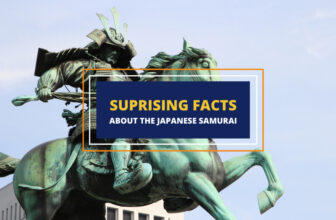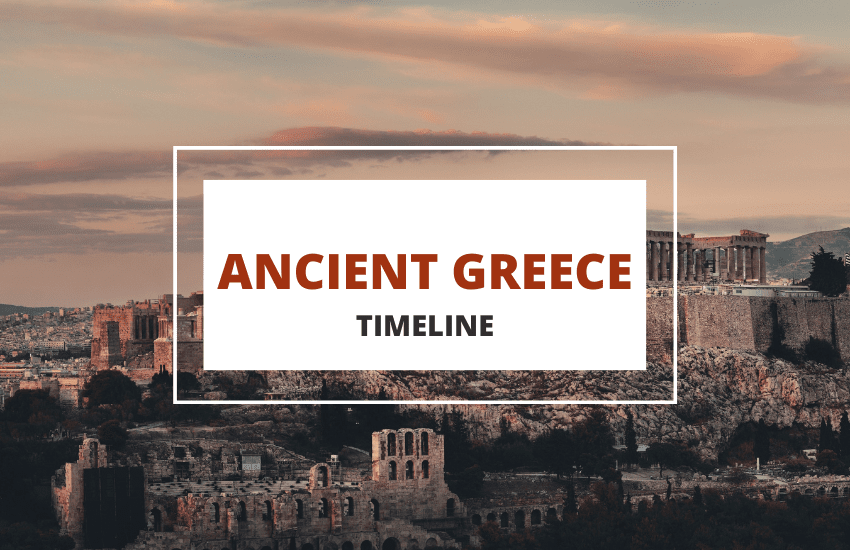
Table of Contents
Many of the inventions and developments that make up our modern world have their origin in ancient Greece. But when exactly? Here is a timeline of all of Greek history from its humble beginnings to the huge empire of Alexander the Great to the end of the Hellenistic Period.
Mycenaean and Minoan civilizations (ca 3500-1100 BCE)
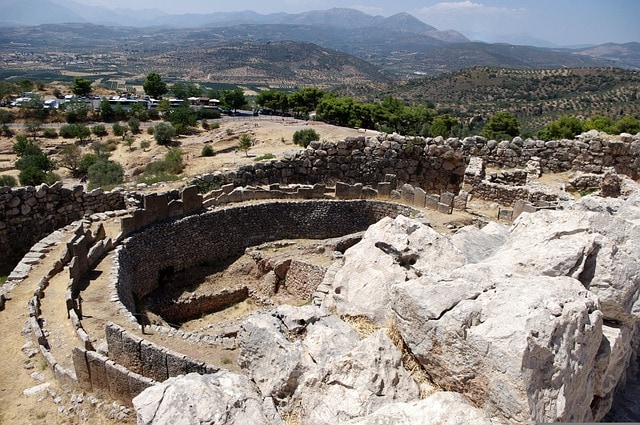
Ok, so these two groups of people have little to do with classical Greeks, although they do share a geographical setting and are related through DNA. The abrupt end of the Minoan civilization has puzzled scholars for centuries now.
7000 BCE – First settlement of human population in Crete.
2000 BCE – The island reaches a population of around 20,000 people. Little is known about the customs and lifestyle during this period.
1950 BCE – According to myth, around this time a labyrinth was built in the island of Crete, to house the Minotaur, the monstrous spawn of king Minos –who gave this people their name.
1900 BCE – First palace in the island of Crete is built. The so-called Knossos palace had approximately 1,500 rooms, each with its own bathroom.
1800 BCE – The first attestations of the writing system known as Linear A (Minoan) are dated to this time. Linear A remains undeciphered to this day.
1600 BCE – The first Mycenaean populations settled in mainland Greece.
1400 BCE – Earliest examples of Linear B in Mycenaean settlements. Unlike Linear A, Linear B has been deciphered and offers an interesting insight into the economy of Mycenaean Greece.
1380 BCE – The Knossos palace is abandoned; its reasons are unknown. Scholars have speculated since the 1800s with a natural disaster of an invasion from abroad, although no proof of either has been found.
Dark Ages (ca. 1200-800 BCE)
The so-called Greek Dark Ages are actually a period of huge development in terms of art, culture, and forms of government. However, there is no known form of writing system during this period, which led classical scholars to believe that nothing of importance had occurred. On the contrary, the main forms of ancient Greek literature, namely the oral epics which were sung by itinerating rhapsodes around mainland Greece, were composed during this interesting (but difficult to study) period.
1000 BCE – First attestations of the geometric style of Greek pottery.
950 BCE – The “hero of Lefkandi” burial site is built. Inside this rich grave, luxurious goods, along with imports from Egypt and the Levant, and weapons, were found. This led researchers to think that the man buried in Lefkandi was a “hero” or at least a prominent figure in his society.
900 BCE – Frequent cultural and economic trades with the East. Some scholars speak of an “orientalizing period”, attested in pottery and statues.
Archaic Period (ca. 800-480 BCE)
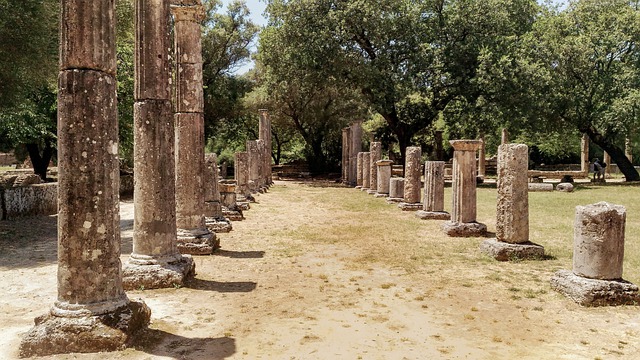
Before the existence of city-states, communities in Greece competed for hegemony in the mainland, but also developed their own distinct cultural traits and customs. It was during this time that the heroic ideal was developed, as Greek people thought that the best representatives of the community were those capable of fighting fiercely and bravely.
776 BCE – The first Olympic Games are held in Olympia, in honor of Zeus.
621 BCE – The strict law reforms of Draco come into effect. Most offenses are punished by death.
600 BCE – The first metal coins are introduced in order to make commercial exchanges easier.
570 BCE – The mathematician Pythagoras is born in Samos. He is responsible for developments in science that are still considered genius to this day.
500 BCE – Heraclitus is born in Ephesus. He was one of the most influential philosophers in ancient Greece.
508 BCE – Cleisthenes passes his famous reforms. These introduce democracy to Greece and the world, and for this achievement he is considered to be the “Father of Greek Democracy”. His democracy awards equal rights to all citizens of Athens and established the institution of ostracism as punishment to unwanted citizens.
Classical Period (480-323 BCE)
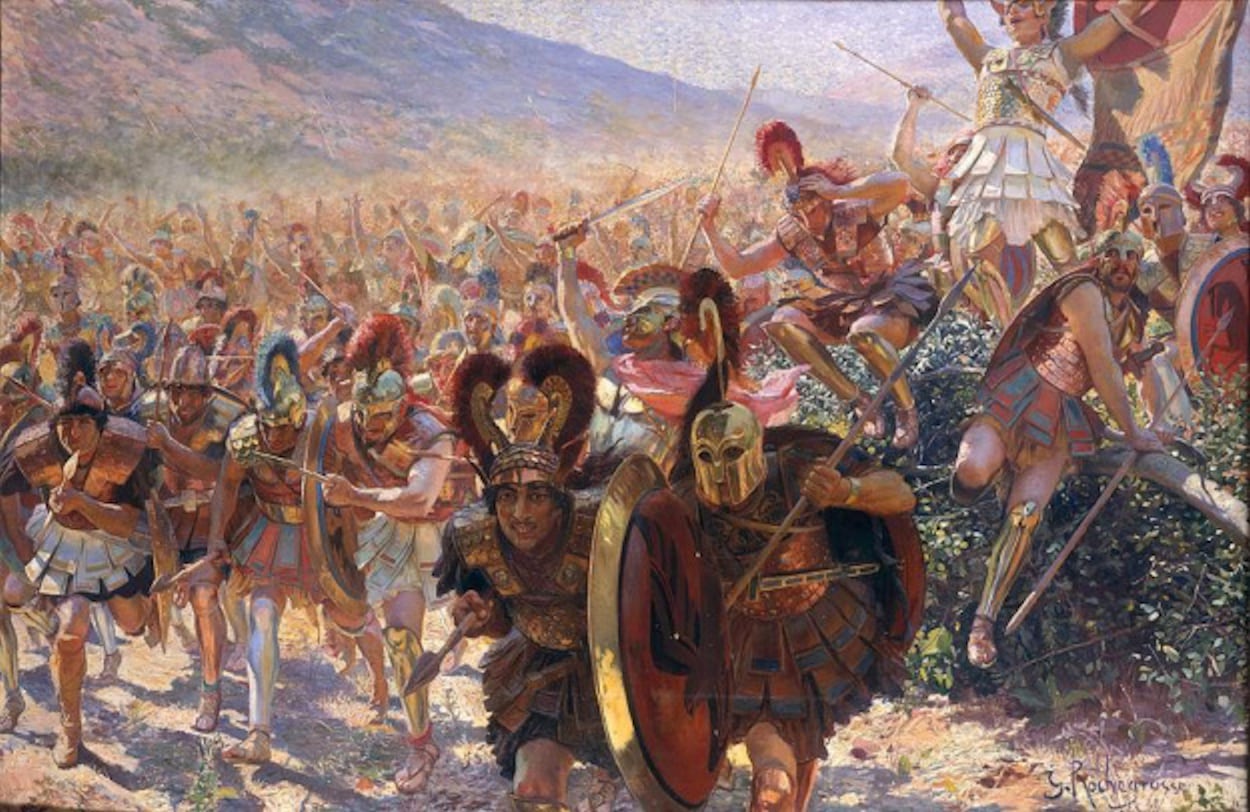
Cleisthenes’ reforms, although at first only effective in Athens, began the age of democracy in Greece. This allowed for an unprecedented growth not only in economic terms, but in cultural and social terms too. Thus started the so-called “Classical Period”, characterized by the development of civilization and by the opposition between the two main city-states: Athens and Sparta.
490 BCE – The battle of Marathon was the decisive event that stopped the invasion of Persia over Greece. This gave the Greek city-state of Athens considerable power and prestige over the rest of the city-states.
480 BCE – The naval battle of Salamis takes place. Despite being outnumbered, thanks to the military genius of Themistocles, the alliance of Greek city-stated defeated the fleet of Xerxes. This battle determines the final retreat of the Persian army.
432 BCE – The Parthenon, a temple in honor of Athena, is built on the Acropolis.
431 BCE – Athens and Sparta engage in war for the control of central Greece.
404 BCE – After 27 years of war, Sparta conquers Athens.
399 BCE – Socrates is sentenced to death for “corrupting the youth of Athens”.
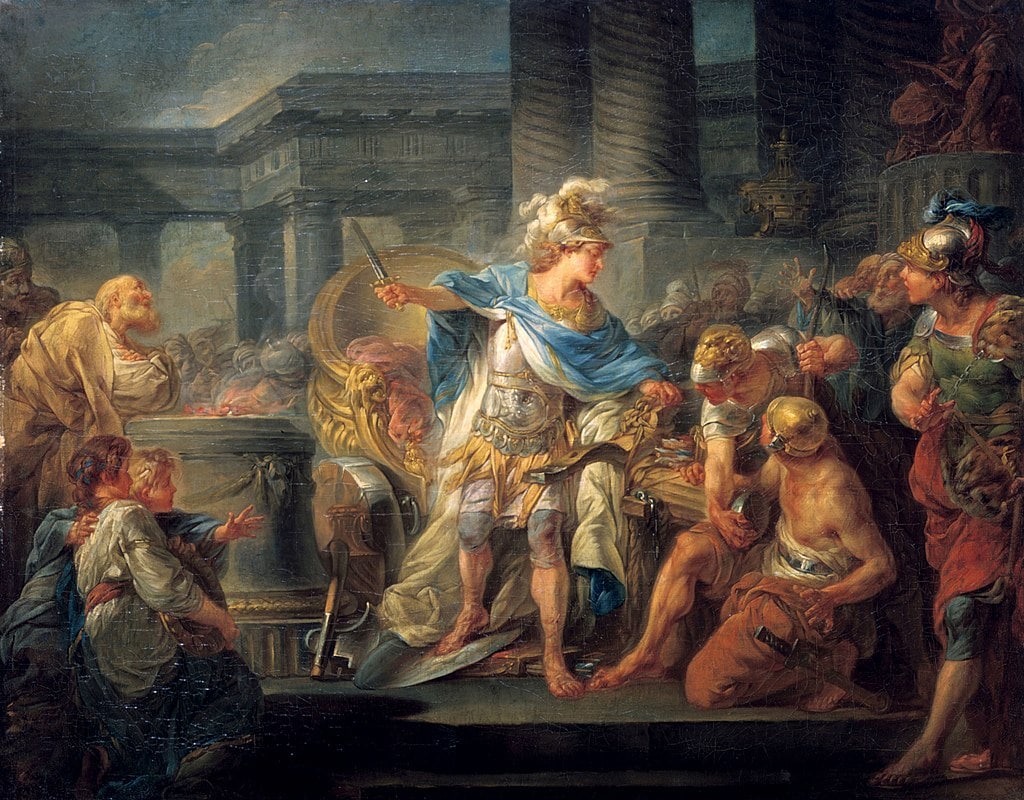
336 BCE – King Philip of Macedon (a kingdom in northern Greece) is assassinated. His son, Alexander, ascends the throne.
333 BCE – Alexander begins his conquests, defeating Persia in the process and starting a new era for the Greek peninsula.
Hellenistic Period (323-31 BCE)
Alexander dies tragically at age 32 in Babylon. At the same time, the Roman empire was gaining power in the region, and the empire that Alexander left was too big to be kept together by his generals, who divided the empire and ruled a province each.
323 BCE – This was also the date when Diogenes the Cynic died. He taught the virtue of poverty in the streets of Corinth.
150 BCE – The Venus de Milo is created by Alexandros of Antioch.
146 BCE – The Greek army is defeated by the Romans in the battle of Corinth. Greece passes to Roman control.
31 BCE – Rome defeats the Greek army at Actium, in northern Africa, acquiring the last territory that was still held by a Hellenistic ruler.
Wrapping Up
In some senses, the Greek civilization is unique in history. Through its history of just a few centuries, the Greeks experimented with the most varied forms of government –from democracy to dictatorship, from warring kingdoms to a huge, unified empire – and managed to set the foundations for our modern societies. Its history is rich not only in battles and conquests, but in scientific and cultural achievements, many of them still admired today.





